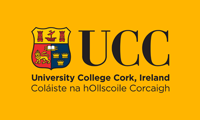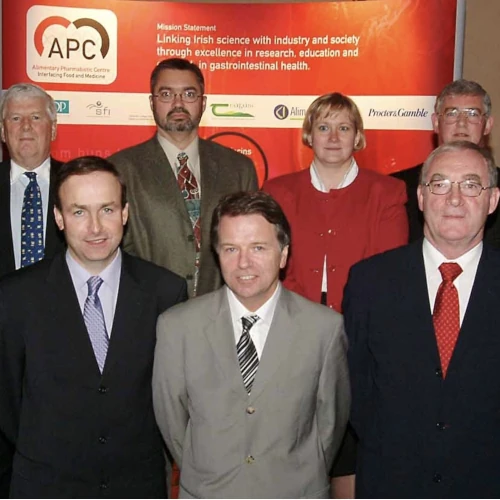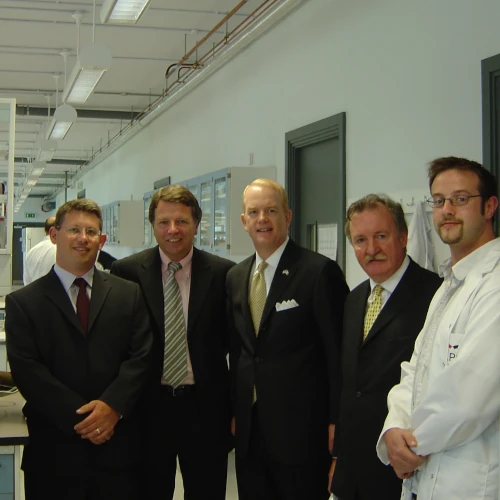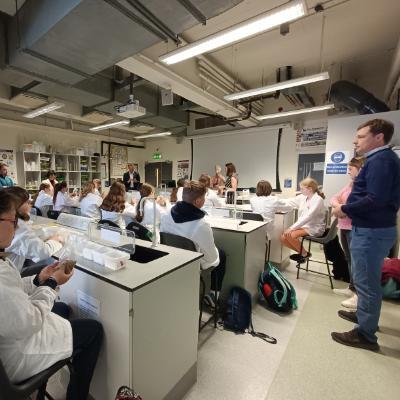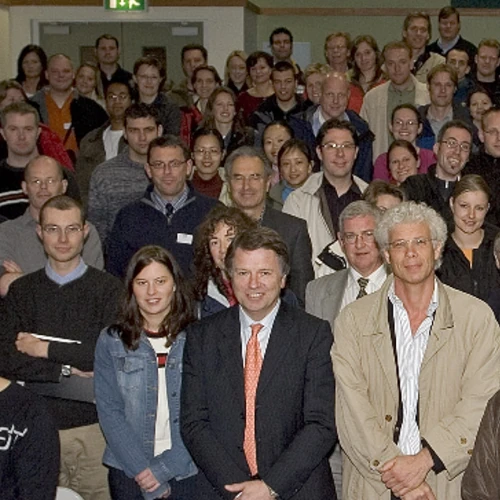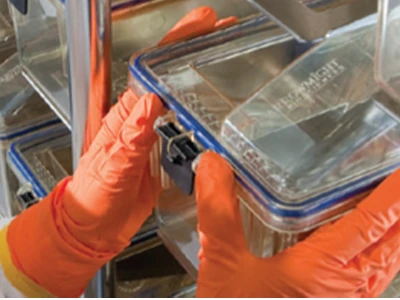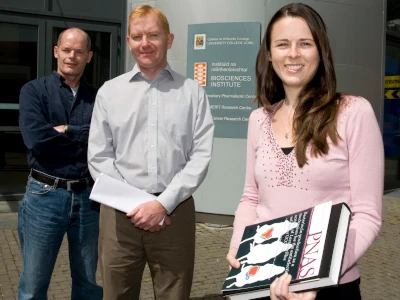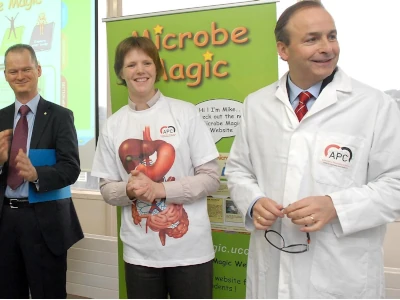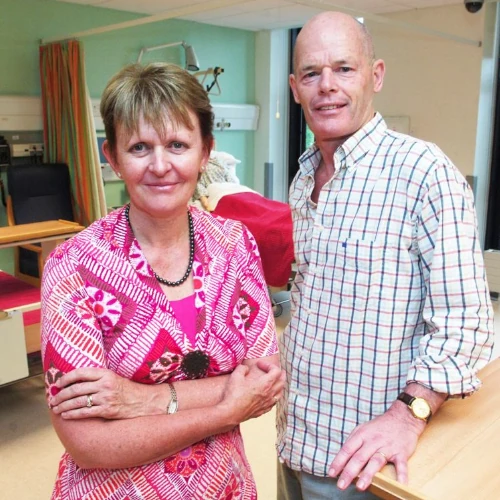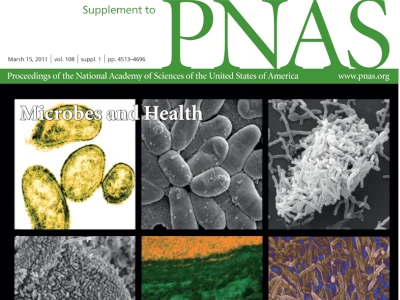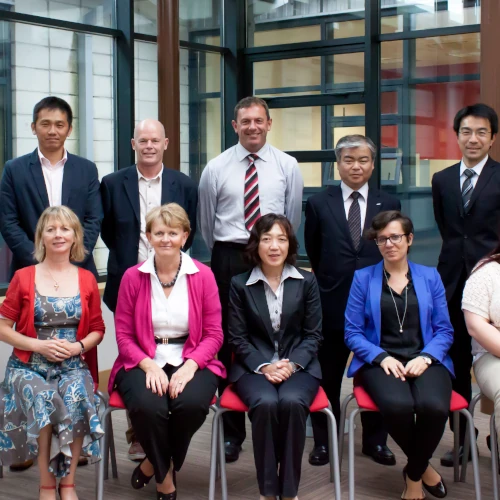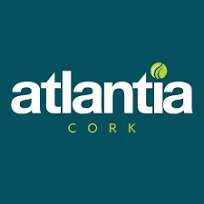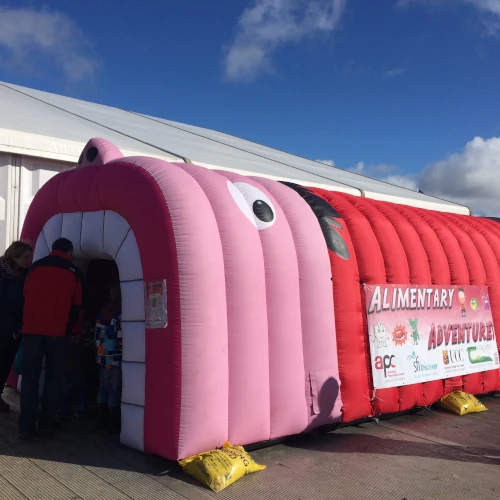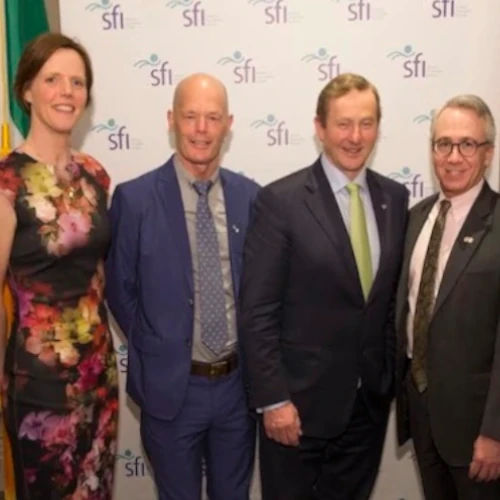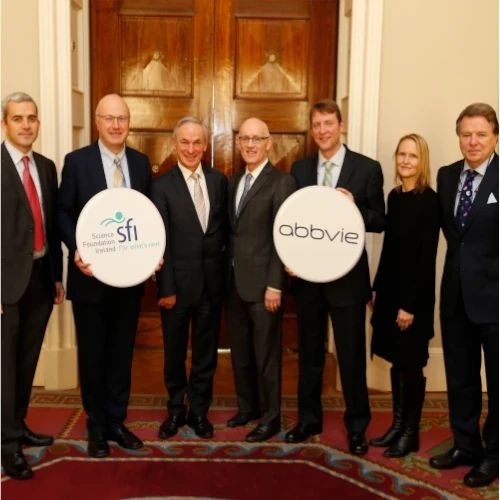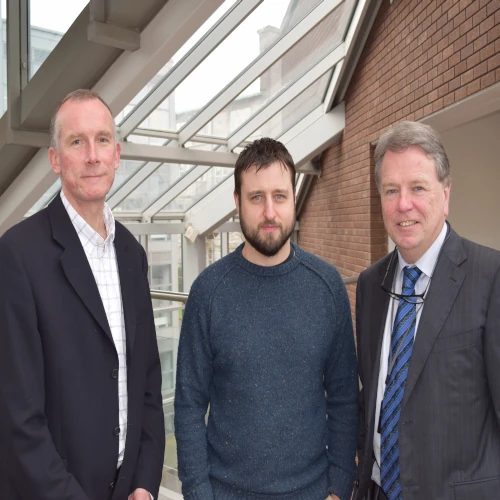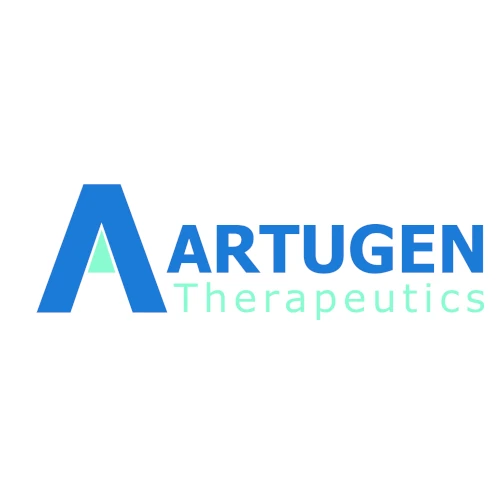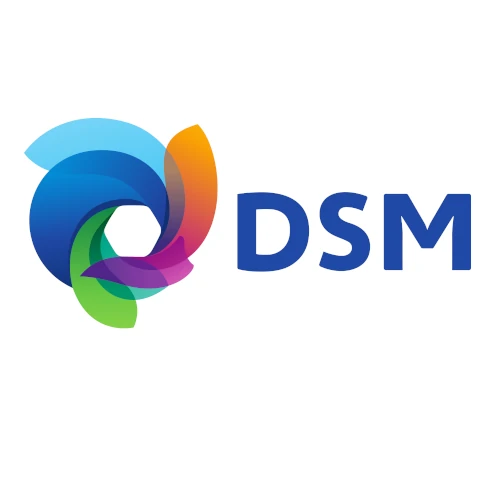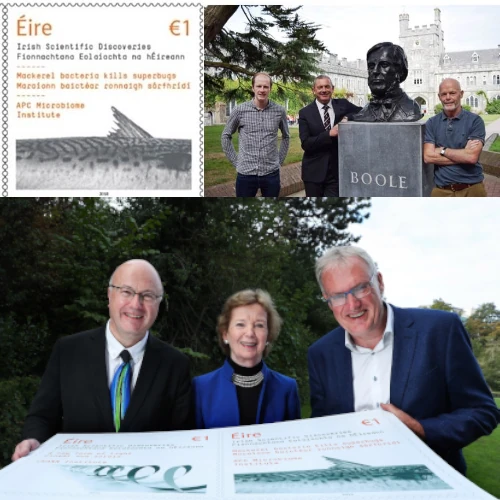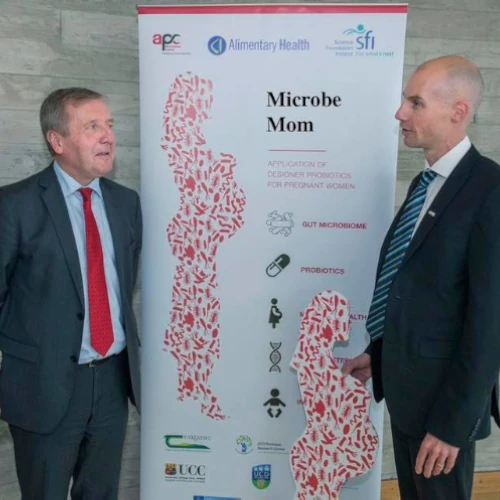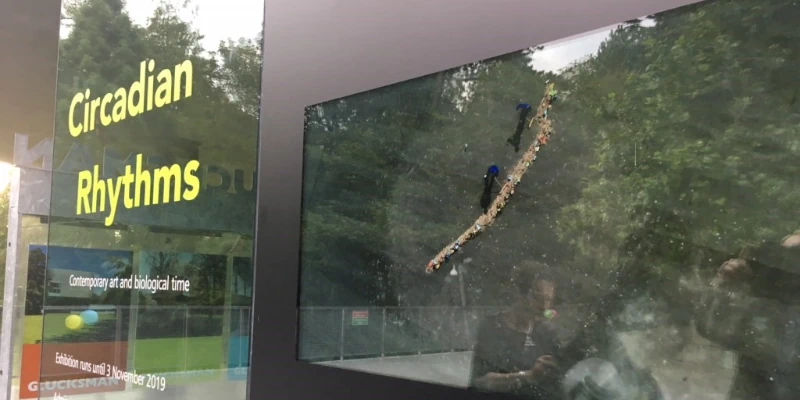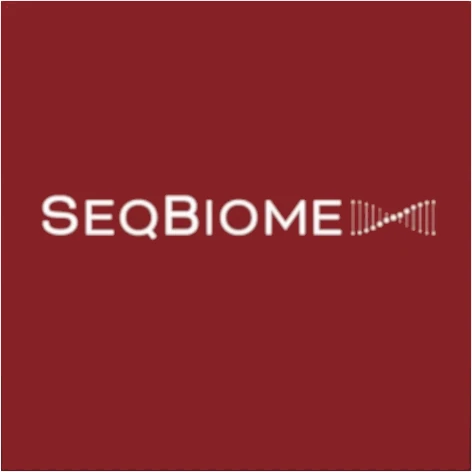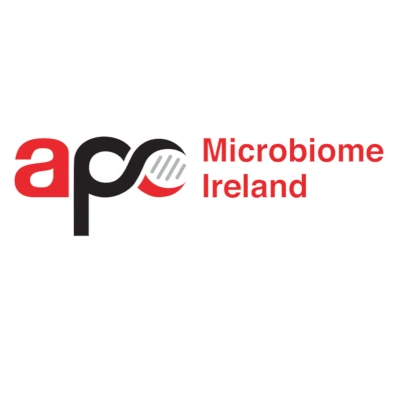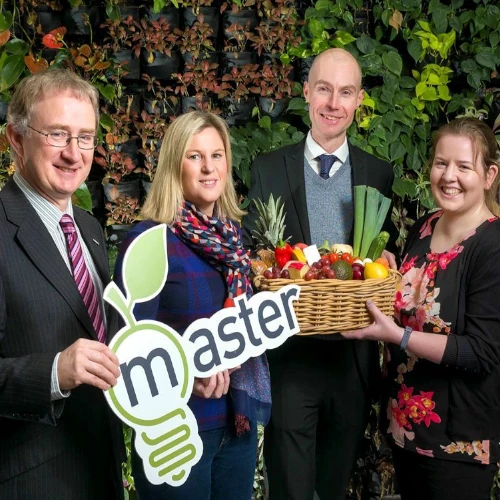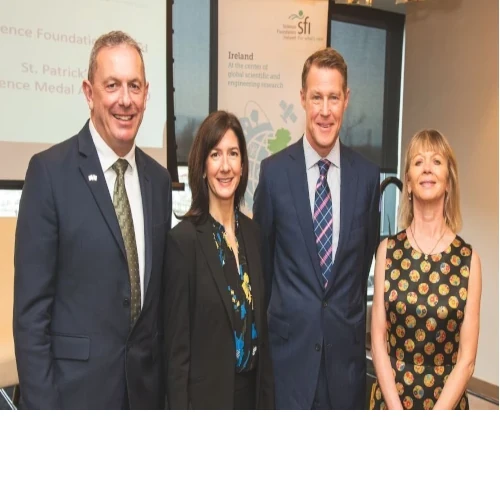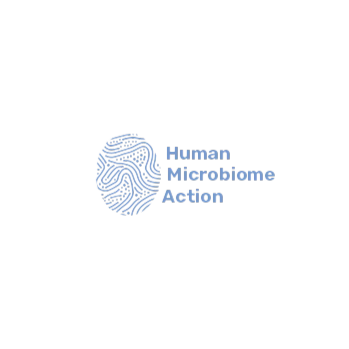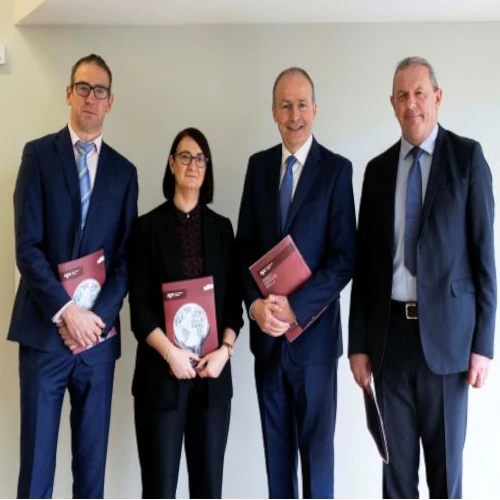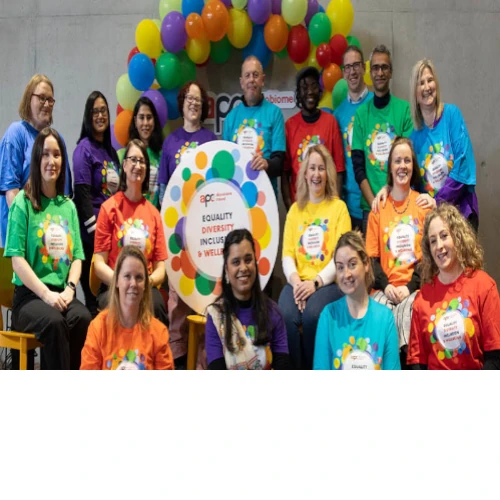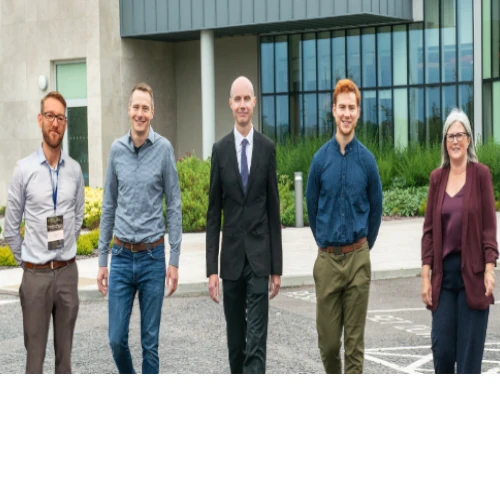Our History
2003-2009

2003 Alimentary Pharmabiotic Centre launch
The Alimentary Pharmabiotic Centre (APC) was established in October 2003, through a five year CSET grant from Science Foundation Ireland (SFI). The goals of the APC included investigating the means by which intestinal bacteria influence health and disease; developing new therapies for debilitating gastrointestinal diseases (such as gastroenteritis, C. difficile, ulcerative colitis and Crohn’s disease); exploring commercial opportunities in both the pharma and functional food sectors; as well as positioning Ireland at the forefront of this exciting new area.
2005 The Green – Orange Culture Symposium with Wageningen April 22nd 2005
The Alimentary Pharmabiotic Centre hosted 47 Dutch scientists at UCC for scientific discussions and cultural activities. The Wageningen Centre for Food Science (WCFS) is the leading research centre for Food Science in the Netherlands and is widely recognised as one of the premier food research organisation in the world. The Dutch scientists chose Cork as the location for their annual scientific retreat because it was seen as an opportunity to create and strengthen scientific linkages with the Alimentary Pharmabiotic Centre (APC).
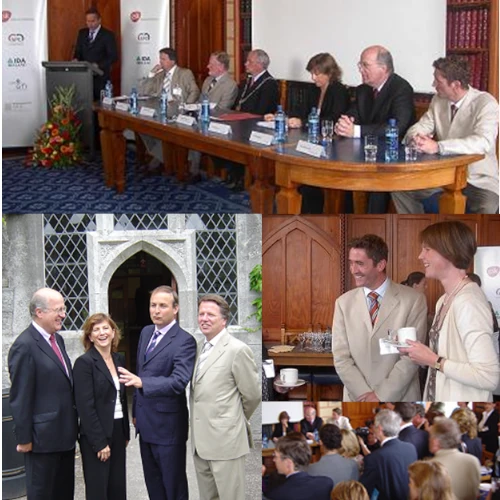
2006 Official announcement of the APC-GSK collaboration by Minister Micheal Martin on August 22nd 2006
... Read more
2006 Official announcement of the APC-GSK collaboration by Minister Micheal Martin on August 22nd 2006
The GSK-APC collaboration was a comprehensive €14 million venture spanning three key R&D areas: (1) bench-to-bedside studies using GSK-developed molecular entities; (2) drug discovery combining GSK technologies with APC’s enabling tools; and (3) exploratory scientific research. The partnership also supported the recruitment of 19 additional scientists at APC
2006 Establishment of first germ free facility in Ireland
To maximise collaboration and efficiency across its core programmes, APC established shared technology platforms. These included a gnotobiotic small animal facility, high-throughput robotics, advanced bioinformatics infrastructure, gene array technologies, and a dedicated human clinical studies team.
2006 Lactobacillus salivarius UCC118
The completion of the genetic sequencing of L. salivarius UCC118 ... Read more
2006 Lactobacillus salivarius UCC118
Scanning electron microscope image (20,000x magnification) of Lactobacillus salivarius UCC118 cells in active growth. This probiotic, bacteriocin-producing strain is notable among lactic acid bacteria for its unique multireplicon genome architecture. Its DNA megaplasmids (large, variable plasmids) suggest a potential mechanism for genome plasticity, enabling adaptation to diverse environments.
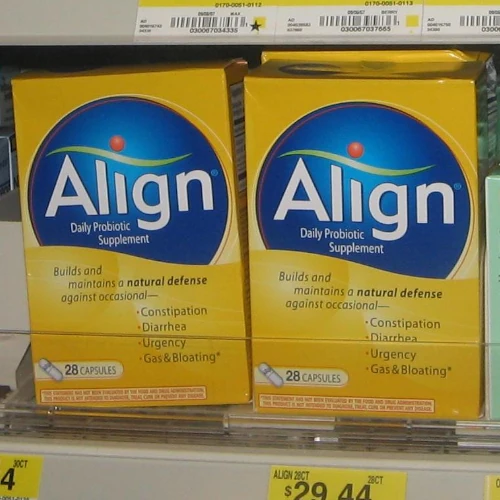
2006 US launch of Align probiotic
Align, which contains Bifidobacterium infantis 35624, a technology developed by UCC, Alimentary Health and the APC and licenced to P&G ... Read more
2006 US launch of Align probiotic
APC played a key role in the development that led to the launch of P&G-Alimentary Health’s probiotic product, Align™. Initially released as a test-market product online in the USA, its strong success prompted a nationwide rollout. Align™ is now marketed as IBme™ and is part of the Novonesis portfolio.
2007 Probiotic action of Lactobacillus
Mice inoculated with Lux-tagged Listeria monocytogenes emit light from the gastrointestinal tract 30 min after infection. The mouse on the left is a control, the mouse in the middle received a probiotic that produces a bacteriocin capable of killing Listeria, and the mouse on the right received a variant of the same probiotic that is unable to produce the bacteriocin and therefore unable to protect the mouse from infection.

2008 Hordes by David Bickley
“Hordes” was an exhibition developed by artist David Bickley, in association with APC scientist John MacSharry, using APC images of the gastrointestinal tract. ... Read more
2008 Hordes by David Bickley
The immersive audiovisual installation Horde portrayed the immune system as an epic Irish myth, drawing vivid parallels between a gut salmonella infection and a legendary battle. This imaginative work captured the complexity of the immune response and featured as part of the acclaimed Infectious exhibition at the Science Gallery, April–June 2009.

2008 CSET Relaunch
In late 2008 the centre was approved 2nd-term funding of more than €17m from the Government through the SFI CSET programme with industry contribution, to support its research programme for a further five years. ... Read more
2008 CSET Relaunch
Minister Jimmy Devins, Prof Fergus Shanahan Tainiste Mary Coughlan and Prof Frank Gannon at the CSET Relaunch announcement in 2008
During a visit to University College Cork in late 2009, Minister Lenihan officially launched Phase 2 of the APC - a leading gastrointestinal health research centre formed through a partnership between UCC, Teagasc, Alimentary Health Ltd., and GlaxoSmithKline. Since its inception, APC has grown into a vibrant, multidisciplinary team of over 100 researchers, supported by diverse funding sources and based across UCC and Teagasc’s Moorepark Food Research Centre.
2010-2019

2010 - 2019 The 2010's
2010 Four papers published in PNAS
Composition, variability, and temporal stability of the intestinal microbiota of the elderly
Effect of broad- and narrow-spectrum antimicrobials on Clostridium difficile and microbial diversity in a model of the distal colon
Thuricin CD, a posttranslationally modified bacteriocin with a narrow spectrum of activity against Clostridium difficile
Genome analysis of Bifidobacterium bifidum PRL2010 reveals metabolic pathways for host-derived glycan foraging
2011 Enterprise Ireland Innovation Partnership scheme with Suntory Wellness
Dr Takayuki Izumo of Suntory Wellness Ltd. spent two years at Teagasc Food Research Centre, Moorepark, collaborating with Dr Catherine Stanton and APC scientists to study the health benefits of Lactobacillus pentosus. This joint project explored the probiotic potential of both Japanese and Irish strains, aiming to develop credible, evidence-based health claims for future applications

2012 ELDERMET study published in Nature
‘ELDERMET’ which investigates the association between gut microbiota, food and health in the elderly in Ireland
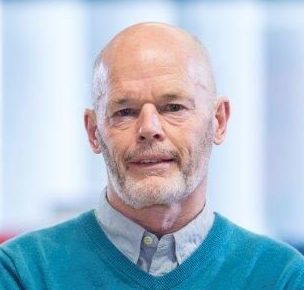
2012 Colin Hill was appointed President International Scientific Association for Probiotics and Prebiotics
2012 APC Spinout company Atlantia launches
Cork-based Atlantia Clinical Trials specialises in conducting human clinical studies in functional foods, supplements, ingredients and live biotherapeutics. Founded in 2012, the company now employs over 80 people with operations in Ireland and in the US.

2013 On our 10th anniversary APC was re-launched as a national SFI Research Centre on 21st June 2013
APC receives €50 million research investment ... Read more
2013 On our 10th anniversary APC was re-launched as a national SFI Research Centre on 21st June 2013
Ministers Seán Sherlock TD (Research and Innovation) and Simon Coveney TD (Agriculture, Food and the Marine) announced €36 million in Government funding for APC research, provided through the Department of Jobs, Enterprise and Innovation. This investment leveraged an additional €14 million from industry partners, marking a significant boost for microbiome research in Cork.

2014 APC partners with Kerry Group
Working on microbial biomarkers with Profs Fergus Shanahan and Paul Ross
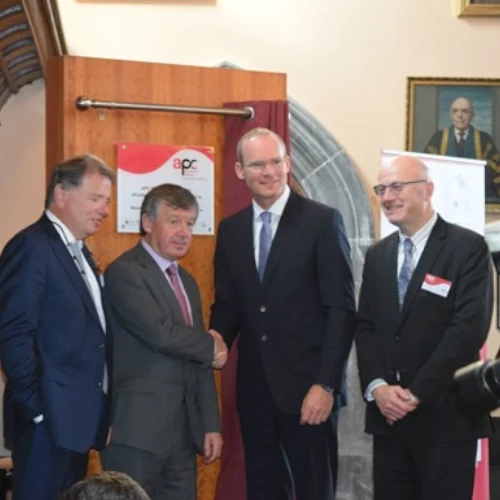
2015 APC becomes APC Microbiome Institute
Launch of the APC Microbiome Institute in UCC on Friday August 28th 2015
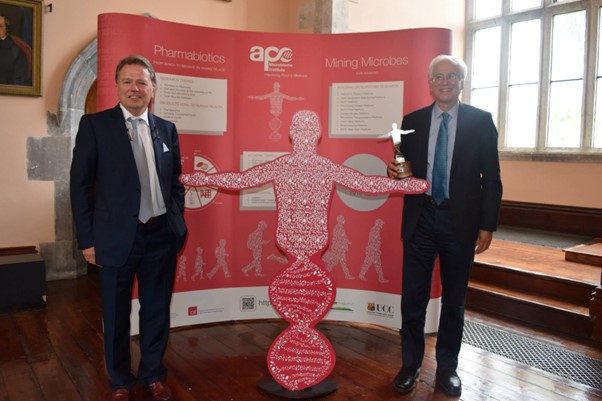
2015 Launch of the Charles Donovan Microbiome Prize and first awarded to Prof Marty Blaser
The Charles Donovan Microbiome Prize was established in 2015 to acknowledge individuals who have made a significant contribution to microbiome science. ... Read more
2015 Launch of the Charles Donovan Microbiome Prize and first awarded to Prof Marty Blaser
The award recipient delivers the Distinguished International APC Lecture which is the keynote at the annual APC Scientific Symposium.

2015 4D Pharma
APC signed a €4.8m research deal with a British pharmaceutical company 4DPharma to develop new drugs which target the gut and treat symptoms of autism.
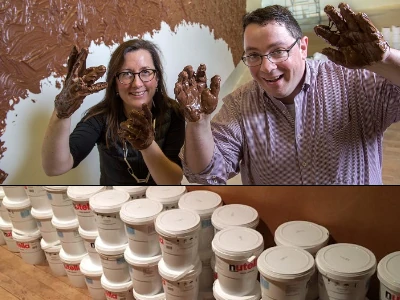
2016 Gut Instinct: Art, Food and Feeling
Curated by Chris Clarke and Fiona Kearney in in association with Professor John Cryan, APC Microbiome Institute. ... Read more
2016 Gut Instinct: Art, Food and Feeling
Expressions like ‘gut feelings’ and ‘gut-wrenching’ reflect a deep-rooted connection between the gut and our emotions. While traditional neuroscience has focused on the brain, research at the APC is flipping that perspective, highlighting the vital role of gut function and diet in shaping mental well-being. Find out more here
2016 DSM partnership on the BacTrans Spoke
The DSM–SFI co-funded BacTrans Spoke project has enabled dsm-firmenich, Taste, Texture & Health, to significantly accelerate its innovation programme in dairy cultures.
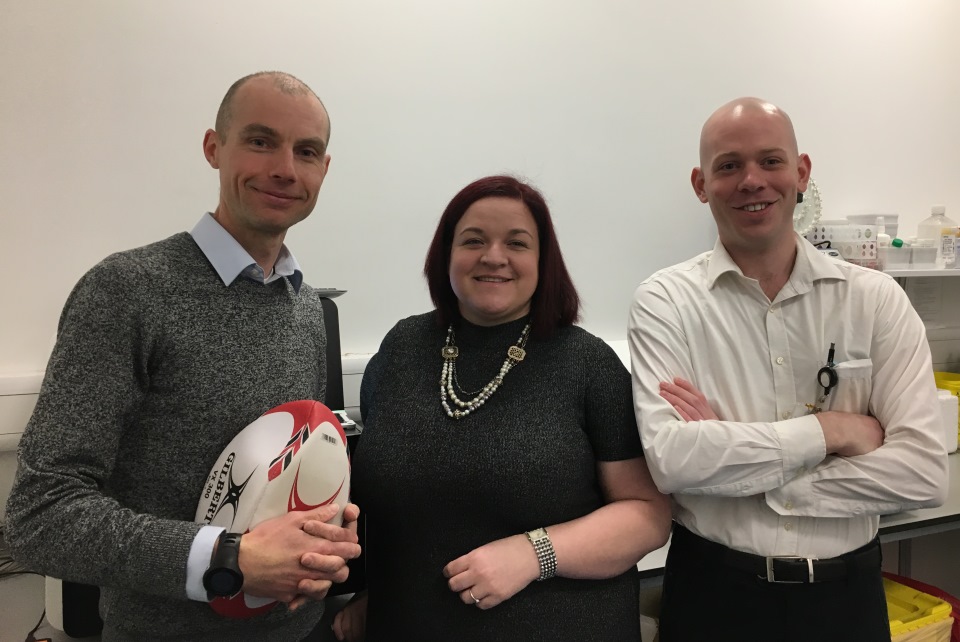
2017 APC scientists have taken our research on the microbiome of professional rugby players to a whole new league.
... Read more
2017 APC scientists have taken our research on the microbiome of professional rugby players to a whole new league.
In collaboration with Imperial College London, APC researchers revealed that the gut microbiome of professional athletes is functionally and metabolically distinct from that of the general population. Athletes' microbiota are optimised for tissue repair and energy extraction—reflecting the intense demands of elite sport. These findings suggest that physical fitness extends beyond the body to include the conditioning of the microbiome itself. Find out more here
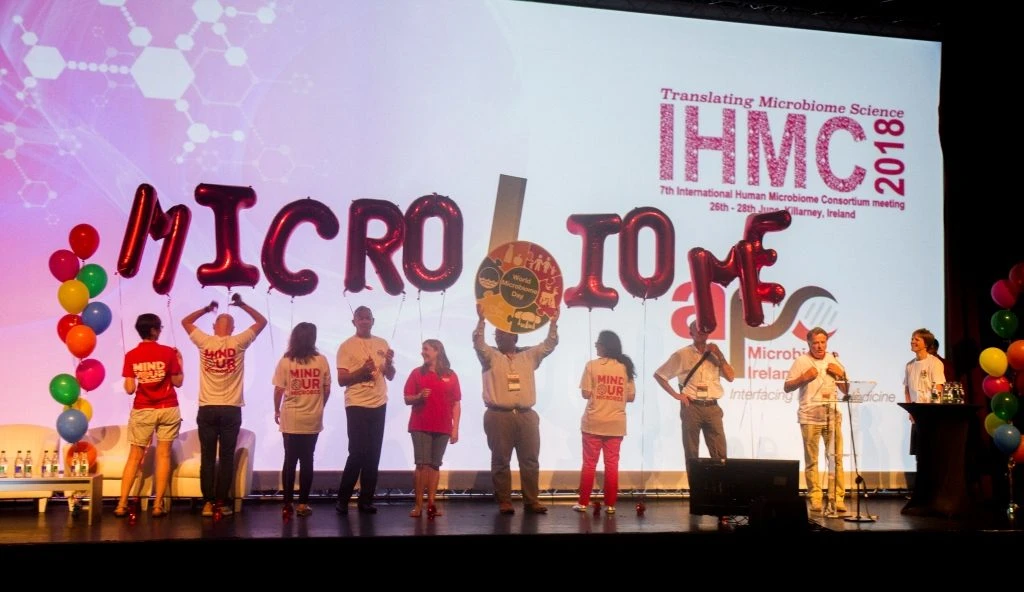
2018 World Microbiome Day
APC conceived and launched the inaugural World Microbiome Day which took place on June 28th 2018, with activities across the globe.
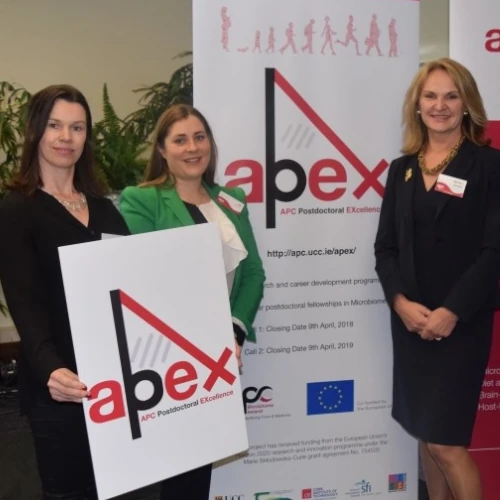
2018 APEX is a postdoctoral fellowship Marie Skłodowska-Curie Action (MSCA) COFUND programme (€1.4million)
2018 Our research was celebrated In Irish Scientific Discoveries Collector Stamps
The Fighting Superbugs stamp celebrates the discovery of a new antimicrobial, formicin, by APC PhD student Fergus Collins, under the supervision of Professors Paul Ross and Colin Hill. Sourced from a bacterium in the gut of a mackerel, formicin can kill a broad range of harmful bacteria—offering a promising alternative in the fight against antibiotic resistance, a crisis highlighted by the WHO. This discovery is part of APC’s broader programme uncovering novel antimicrobials for human and animal health. Notably, Fergus is the second member of his family to inspire an An Post stamp—his sister previously featured on one marking 100 years of Scouting in Europe.
The four stamps in the collection were unveiled by former president and climate justice campaigner Mary Robinson, Professor Luke O'Neill from Trinity College Dublin and the Director General of Science Foundation Ireland, Professor Mark Ferguson, at the international Schrodinger at 75 Conference in Dublin.
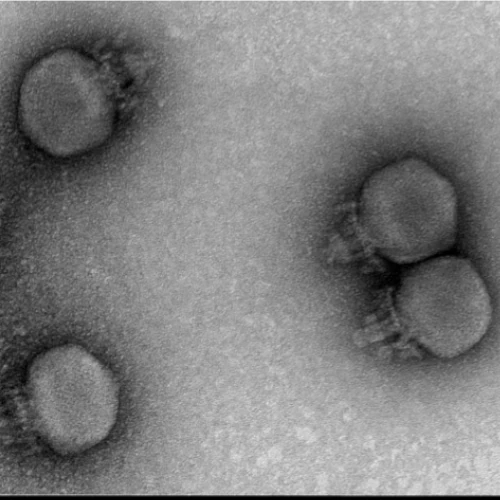
2018 APC cultured for the first time the most abundant biological entity in the human microbiome, the crAssphage
2019 Circadian Rhythms: Contemporary art and biological time
In partnership with APC Microbiome Ireland, the Glucksman presented an exhibition exploring Circadian Rhythms, the natural 24-hour cycles that govern all life on Earth. Featuring Irish and international artists, the exhibition reflected on time, work, sleep, and the impact of modern technology on our biological clocks, offering a unique intersection of art and science. Find out more here

2019 Andrey Shkoporov awarded the institutes first ERC
European Research Council (ERC) Consolidator Award, PHAGENET secured by Andrey Shkoporov ... Read more
2019 Andrey Shkoporov awarded the institutes first ERC
For more information on Phagenet and our other ERC grants please click here.
2019 MASTER Project Receives €11 Million In Funding
MASTER (Multiple ASpects TrajEctoRy management and analysis) is a project funded under the call H2020-MSCA-RISE-2017 with the objective of forming an international and inter-sectoral network of organisations working on a joint research programme to define new methods to build, manage and analyse multiple aspects semantic trajectories. Find out more here.
2020-2029

2020 - 2029 The 2020's
2020 DuPont partnership on the MiMiC project
The €6.3 million, four-year MiMIC project, jointly funded by Science Foundation Ireland’s Spokes Programme and DuPont, was established to develop microbiome-based solutions that support the establishment of a healthy microbiome in early life, laying the foundation for long-term health and well-being.
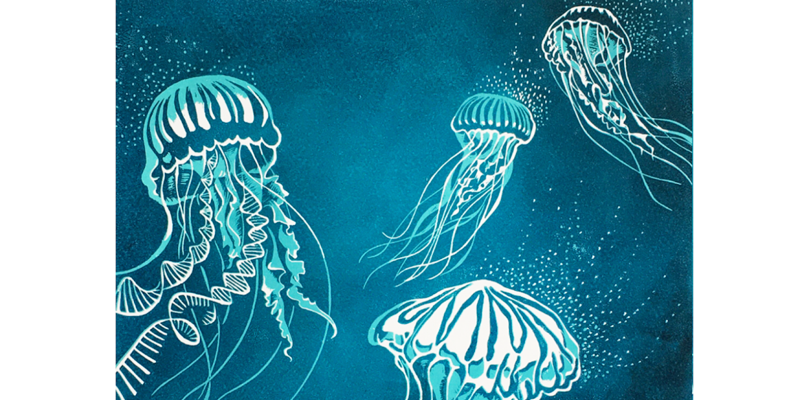
2021 The Invisible Made Visible: COVID testing explained in unique STEM-Art collaboration
STEM-Art Collaboration with APC communicates COVID-testing is a unique collaboration with Prof Cormac Gahan at APC Microbiome Ireland SFI Research Centre and botanical artist, Shevaun Doherty. ... Read more
2021 The Invisible Made Visible: COVID testing explained in unique STEM-Art collaboration
Their project communicates the science of COVID-testing through the creative process of lino-printing and film. The public launch of the exhibit was 20th May 2021
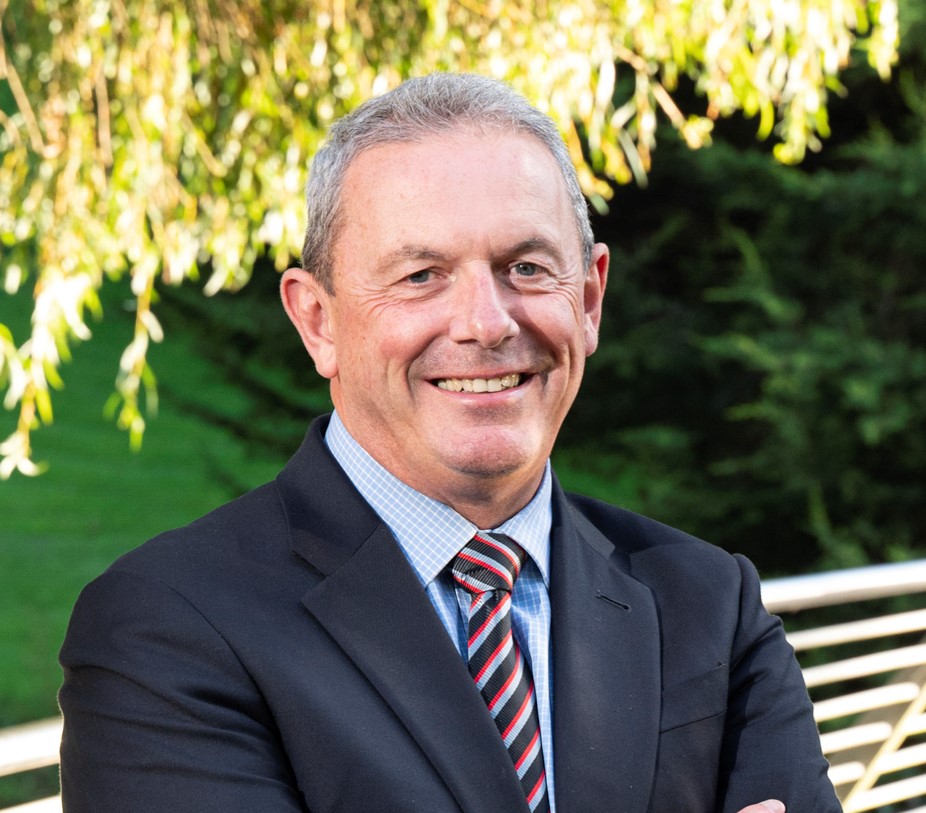
2022 Professor Paul Ross awarded prestigious ERC Advanced Grant to tackle antimicrobial resistance.
This is the first Advanced grant awarded to UCC ... Read more
2022 Professor Paul Ross awarded prestigious ERC Advanced Grant to tackle antimicrobial resistance.
Professor Ross, who is the first researcher based at UCC to secure an ERC Advanced Award, has received funding of €2.3 million for a project entitled BACtheWINNER. The funding gives Europe’s established research leaders the opportunity to lead ground-breaking projects to solve the most pressing social, economic and environmental challenges.
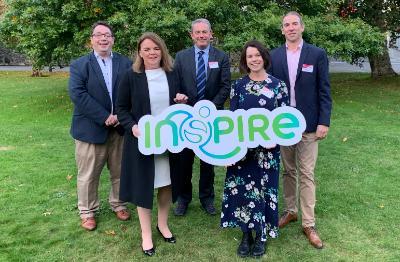
2022 APC launches INSPIRE Postdoctoral Fellowship Programme to tackle grand challenges
... Read more
2022 APC launches INSPIRE Postdoctoral Fellowship Programme to tackle grand challenges
INSPIRE is a Horizon 2020 Marie Skłodowska-Curie Actions postdoctoral fellowship programme for intersectoral training, career development and mobility.
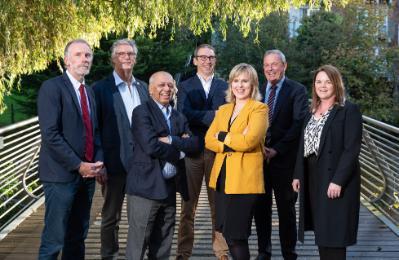
2023 New Zealand Global Dairy Giant Fonterra launches new Research Centre in Ireland
Ireland was selected as the location on the strength of the scientific excellence at APC and UCC for their new research centre ... Read more
2023 New Zealand Global Dairy Giant Fonterra launches new Research Centre in Ireland
The APC will support Fonterra’s aim to introduce a range of novel science-based probiotic strains into the market over the next five to ten years.
2023 APC Microbiome Ireland celebrates 20 years of scientific excellence and impact
An Tánaiste and Minister for Foreign Affairs and Defence, Mr. Micheál Martin TD, launched APC Microbiome Ireland’s 20 Years of Impact brochure at a special celebration marking the Centre’s 20th anniversary. The event highlighted APC’s evolution into a world-leading SFI Research Centre based at University College Cork and Teagasc.
2023 Kefir4All
Kefir4All, a citizen science initiative to raise awareness of the roles that microbes play in food fermentation. To find out more please click here
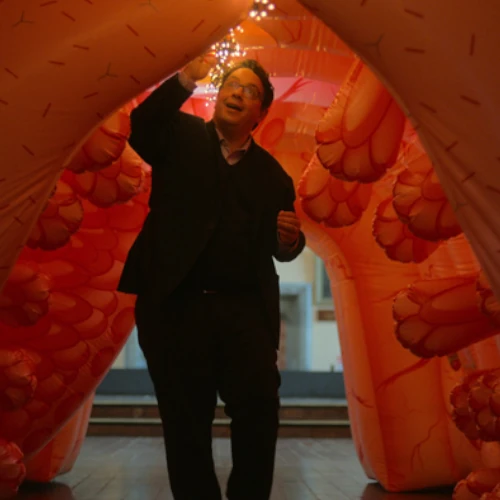
2024 Professor John Cryan was featured in the Netflix documentary, Hack Your Health: Secrets of the Gut.
2024 Largest survey of microbes in food to date
The first comprehensive database of food metagenomes has been developed by the EU-funded MASTER project; the associated paper ‘Analysis of 2,500 food metagenomes reveals unexplored microbial diversity and links with the human microbiome’ is published today in the prestigious journal Cell. The curatedFoodMetagenomicData (cFMD) database is a milestone database of metagenomes (the collective term for all of the genomic material from all of the microorganisms in an environment) from food that will enable DNA sequencing technologies to operate at their peak potential, helping researchers tackle global challenges, like food waste and antimicrobial resistance, while increasing food safety.
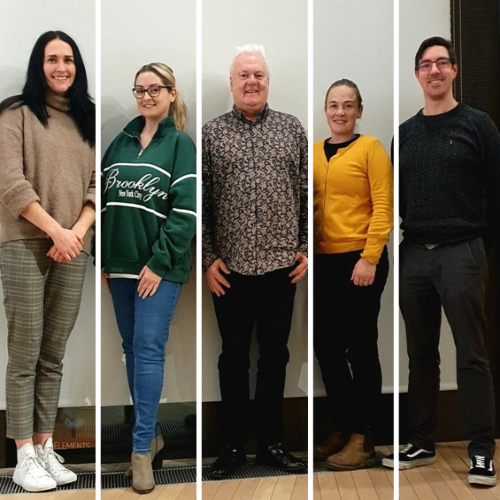
2024 Our first PPI panel
Exploring Dietary Influences on IBD: Insights from Irish Patients ... Read more
2024 Our first PPI panel
For more information about our paper and IBD insights please click here
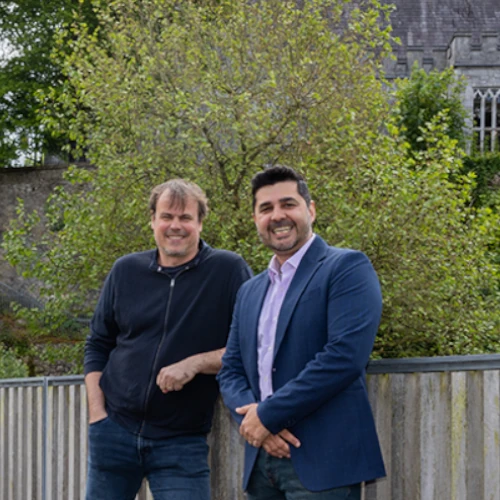
2025 New Study Reveals How a ‘Non-Industrialised’ Style Diet Can reduce Risk of Chronic Disease
... Read more
2025 New Study Reveals How a ‘Non-Industrialised’ Style Diet Can reduce Risk of Chronic Disease
The newly developed diet that mimics eating habits in non-industrializsed communities led to significant metabolic and immunological improvements in a human intervention study. In just three weeks the diet:
- Promoted weight loss
- decreased bad cholesterol by 17%
- reduced blood sugar by 6%
- reduced C-reactive Protein (a marker of inflammation and heart disease) by 14%

